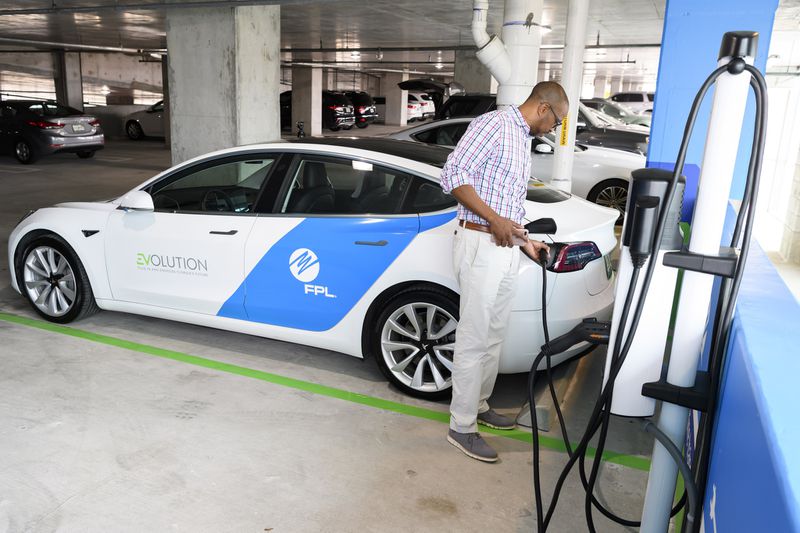This op-ed, written by SACE Executive Director Dr. Stephen A. Smith, originally appeared in South Florida Sun Sentinel on August 20, 2021.
Southern Alliance for Clean Energy (SACE) is a nonprofit organization committed to a cleaner and more equitable energy future in Florida and the Southeast. We have a long history of both working with and at times challenging Florida’s big electric utilities to increase investment in clean energy, such as solar power, electric vehicle infrastructure and energy efficiency. We’ve called utilities out on their shortcomings, and took the battle directly to them for more solar choice for customers in the 2016 battle over solar ballot initiatives. That’s why some may be wondering why SACE signed on to the recently filed settlement agreement with the Office of Public Counsel and other parties in Florida Power & Light’s (FPL) rate case.
If approved, the agreement will reduce the rate increase FPL originally proposed through 2025 by over $400 million and drive significant investment in clean energy technologies. On the heels of the Intergovernmental Panel on Climate Change (IPCC) report, the clean energy investment can’t come soon enough for mitigating the worst effects of climate change. Scientists from around the world have issued the strongest warning ever on the need for urgent action. Their report unequivocally confirms that the climate crisis is here and we must immediately begin significant cuts in carbon pollution to avert the worst impacts of a changing climate. The sobering assessment in the report is especially poignant given that Florida is ground zero to climate change impacts like sea level rise, extreme heat, and stronger storms.
Benefits for all customers
The settlement agreement doubles and accelerates FPL’s commitment to build solar. FPL originally proposed building 1,788 megawatts of solar. Under the terms of the settlement, an additional 1,788 megawatts of solar power will fuel the expansion of FPL’s shared solar program, SolarTogether. This popular program, which began in 2018, quickly sold out and has a long waiting list of customers. This new investment will significantly expand access to solar power to more FPL customers and help local governments and businesses meet their clean energy goals. Low-income families who sign up will benefit from savings starting on day one.
Clean, renewable solar power is not only critical to addressing the ravages of climate change by lowering fossil fuel use on the utility’s system, but it’s also cost-effective and helps insulate customers from fuel price shocks on bills. FPL’s solar investments helped the Sunshine State claim its rightful place as a national leader in solar development — going from tenth in total solar development in 2017 to third place today. The settlement adds an additional $2 billion investment to grow more solar jobs and keep Florida on pace to continue to climb up the state rankings.

Investments in EV infrastructure to lower utility costs for all
Moreover, the agreement significantly ramps up FPL’s investment in electric vehicle (EV) charging infrastructure — from $30 million to almost $200 million, including $100 million in an EV Fast Charging program that will expand access to chargers in underserved communities and along evacuation routes. It includes charging programs for homes and businesses.
Ultimately, the settlement will save customers money as EVs cost less to operate compared to cars that run on fossil fuels, and smart charging will help lower utility costs for all ratepayers. Utilities have not historically played a meaningful role in the EV space — this is a significant step in the right direction. Decarbonizing the transportation sector by moving cars and trucks from fossil fuels like gas and diesel to clean electricity is key to solving the climate crisis as transportation emissions have now overtaken electricity production as the leading contributor to climate disruption.
More work to be done
We are the first to acknowledge there is much more work to be done in Florida both on energy policy and in meaningfully elevating customers’ voices in Tallahassee. SACE has and will continue to defend customer-owned solar and lead on modernizing the state’s energy efficiency goal setting rules, as we must ramp up the scope and depth of energy saving opportunities, especially for low-income customers. The state should aggressively pursue its least cost resource — using energy smarter.
Likewise, we’ll continue to advocate for a more transparent and robust utility resource planning process that leads to meaningful participation and better outcomes for Florida families and businesses. Unfortunately, both the current political and regulatory environment does not realistically allow for the resolution of these foundational issues in the current rate case. These are structural changes that need to be addressed.
SACE strongly believes the solar and electric transportation investments in the settlement — coupled with others, such as large scale battery storage — are needed now. Our planet is on fire, record heat waves and flooding dominate the headlines. This settlement is a step in the right direction, but no doubt much more needs to be done.
Dr. Stephen A. Smith is Executive Director of the Southern Alliance for Clean Energy (SACE), a nonprofit committed to promoting responsible and equitable energy choices to ensure clean, safe and healthy communities throughout the Southeast.